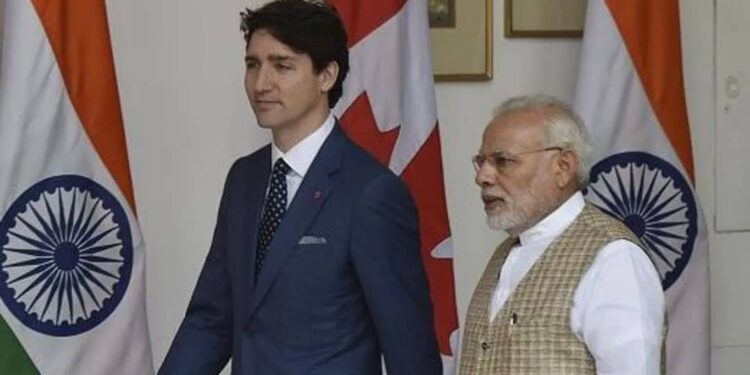India and Canada have expelled top diplomats and several other officials amid an escalating diplomatic spat, following Canadian Prime Minister Justin Trudeau’s allegations linking Indian agents to violent criminal activities, including murder, on Canadian soil.
Trudeau’s government accused Indian agents of involvement in “homicides, extortion, and violent acts,” particularly targeting supporters of the pro-Khalistan movement, which advocates for an independent Sikh homeland in India.
Canadian authorities stated that multiple agents were involved, though they did not confirm if any were directly connected to the murder of Hardeep Singh Nijjar, a Sikh separatist leader killed in British Columbia in June 2023.
India swiftly dismissed the accusations as “preposterous.” Relations between Ottawa and Delhi have been tense since Trudeau claimed Canada had credible evidence linking Indian agents to Nijjar’s killing. The ensuing diplomatic row saw India demanding that Canada withdraw dozens of its diplomatic staff and announcing the suspension of visa services.
India’s foreign ministry issued a scathing statement on Monday, accusing Canada’s government of being influenced by Sikh separatist elements. “India now reserves the right to take further steps in response to these latest efforts of the Canadian government to concoct allegations against Indian diplomats,” the statement declared. India also defended High Commissioner Sanjay Kumar Verma, whose career spanned over 36 years, stating, “The aspersions cast on him by the government of Canada are ludicrous and deserve to be treated with contempt.”
Following the accusations, India summoned Stuart Wheeler, Canada’s deputy head of mission in Delhi, to the External Affairs Ministry. Wheeler was informed that India found the allegations against its High Commissioner and other diplomats “completely unacceptable.” The ministry’s statement asserted, “We have no faith in the current Canadian government’s commitment to ensure their security. Therefore, the government of India has decided to withdraw the High Commissioner and other targeted diplomats and officials.”
The killing of Nijjar, who was shot by two masked assailants outside the Sikh temple he led in Surrey, British Columbia, has been a flashpoint in India-Canada relations. Nijjar, a vocal supporter of the Khalistan movement, had been labeled by India as a terrorist linked to militant separatism—charged his supporters dispute. Canadian authorities have described Nijjar’s death as a “targeted attack.”
In September 2023, Trudeau told Canada’s parliament that intelligence pointed to a potential Indian connection in Nijjar’s assassination, which he said violated Canada’s sovereignty. India, however, has consistently denied any involvement, asserting that Canada has not provided credible evidence to support its claims.
The diplomatic rift appeared to ease slightly when India resumed processing Canadian visas in October 2023. However, last week, Canadian Foreign Minister Mélanie Joly described Canada’s relationship with India as “tense” and “very difficult.” She warned that the threat of violence against Sikh activists on Canadian soil remained a concern.
Delhi also stated its intent to consider additional measures in response to Canada’s latest actions, suggesting that this bilateral crisis is far from over.



